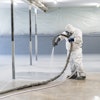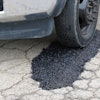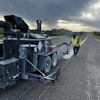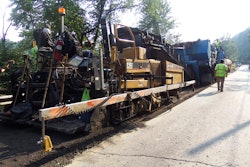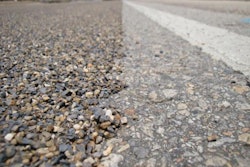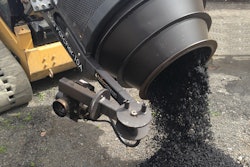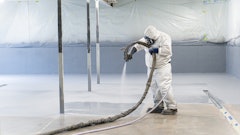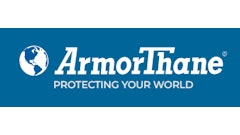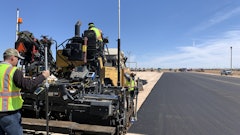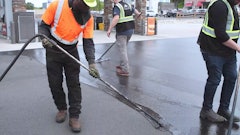On August 19 the Winnetka Village Council voted 4-1 to ban coal tar sealer in the town, making it the second Illinois community to make the mistake of leaping to ban the material when there's no scientific reason to do so. Proponents of the ban, including the U.S. Geological Survey folks who started all these shenanigans with a flawed "study" in Austin, TX that has been the focal point of all efforts to ban refined tar sealer, say they support the ban to protect the environment and to protect the community from carcinogens in the form of polycyclic aromatic hydrocarbons.
As The Chicago Tribune reported, Winnetka resident Debbie Ross told the board, "I would urge you to go forth on banning something that has ingredients which are known to be carcinogenic. Why not err on the side of safety?"
Why not, indeed? Well, how about because the ban is not supported by science? And how about because there's no evidence that refined tar sealer causes any problems at all. As Anne LeHuray of the Pavement Coatings Technology Council told the board, “Coal tar is generally recognized as safe and effective by the Food and Drug Administration. It’s controlled at the federal level by numerous regulations. It’s been used for 50-60 years. There hasn’t been a report, no insurance claim, no worker’s compensation [related to refined coal tar sealants].”
The biggest problem concerning these efforts to ban refined tar sealer -- and the problem reared its ugly head in Winnetka -- is that this is complicated science and most people who end up voting on the ban don't have the time or the interest to actually sift through the reports (and the refutations of the reports) to be able to make an informed decision. So they hear that a material might potentially be cancer-causing and they do a little research on the Internet and then they react (kind of understandably) by protecting their constituents and supporting a ban. After all, what public official wants to run for re-election on a 'pro-cancer, anti-environment" platform?
But the fact is, the science is out there for anyone who wants to take the time to look at it. It's not an easy read -- even the articles (here are three 1, 2, 3) in Pavement Maintenance & Reconstruction, where we try to distill the study results for easier understanding, can be a tough slog. But a critical reading of the science shows just what PCTC and others are saying: that there's no evidence of any health problem resulting from the use of refined tar sealer. The problem is in the emotional overtones created when the word "cancer" is connected with any product.
But kudos to Winnetka council trustee Carol Fessler, the only person to vote against the ban, for taking what is exactly the correct approach to this issue. Fessler said she wanted to see scientific evidence that a ban is needed and suggested sending the issue back to Winnetka's Environmental & Forestry Commission for more study and possible testing of local waterways to determine if a problem exists now (after decades of refined coal tar use). As reported on Winnetka Talk, “If this is so bad, if these facts are so right, why have the agencies we’ve entrusted not banned this?” Fessler said. “I don’t feel as though we’ve done a good process.”
Good for her. Because as PCTC has often said, no one wants to produce or sell a product that's going to cause harm to someone or knowingly damage the environment. In fact most if not all of the companies that make up PCTC sell other types of pavement sealer, so banning refined coal tar sealer might damage their business in the short term but they'll shift their sales to other products, just like contractors will shift their use to other products. So this is not an economics issue and it's not a profit-related issue; it's a science issue that comes smack up against dreaded "cancer," and it's so much easier to vote against cancer.
So Winnetka joins South Barrington as the second Illinois community to screw up (there are a few others across the country); Hopefully they'll be the last. But they and other communities considering a ban on refined tar sealer should take the plunge into the murky science waters so that they have an actual basis -- not just a knee-jerk, emotional reaction -- for whatever action they end up taking.


